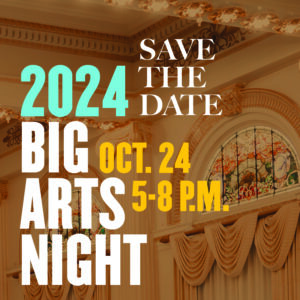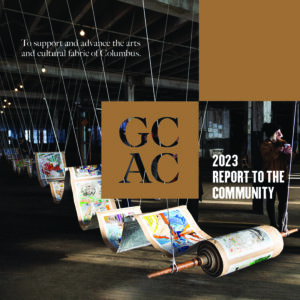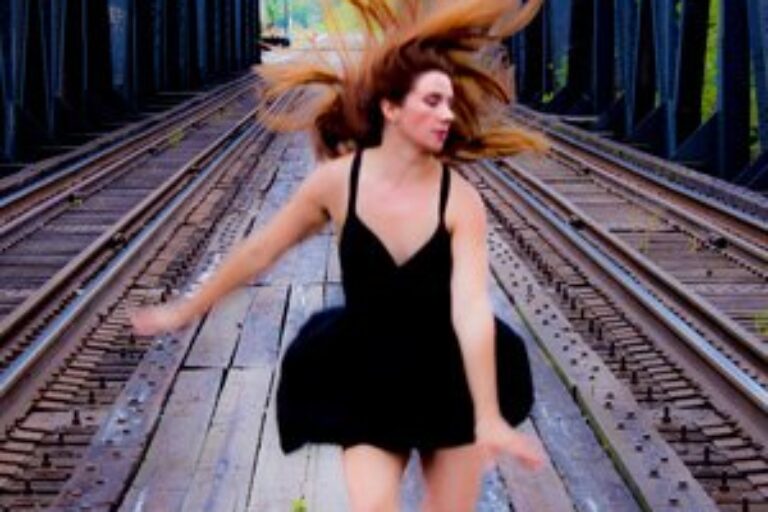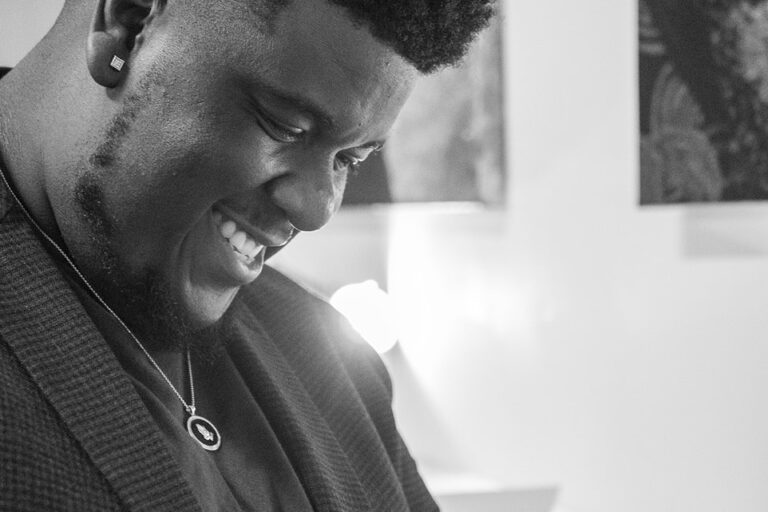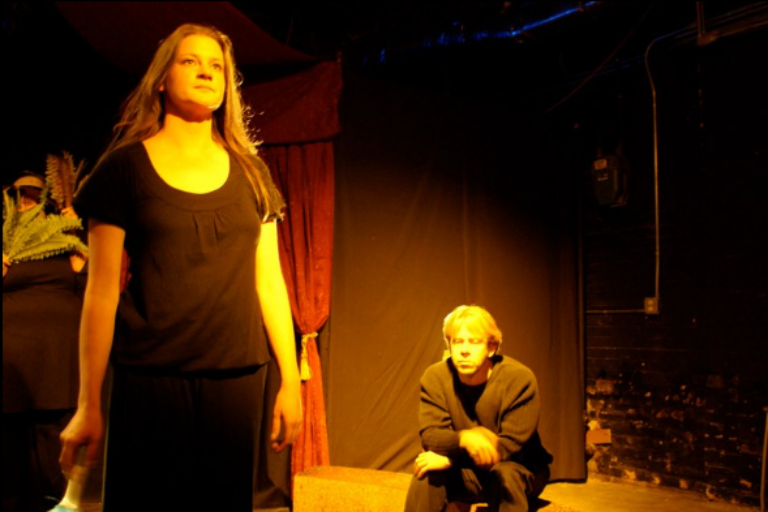As a baby, Quianna, would lay on her back and click her feet to the beat of the music floating through the room. She was already connected to movement at a young age.
But her mom was uncertain if she would ever dance.
Quianna was born bow-legged. Without reconstructive surgery, she would never walk — let alone dance. Thankfully, she had the surgery, and has been moving across stages ever since.
Because for Quianna, she needs dance to live.
Her official start was in the children’s program at YWCA Columbus where she was trained in
traditional African dance. Now, the program takes place at the historic Lincoln Theatre, where entire generations perform, from her daughter to nieces to cousins.
Her love language is movement. Her passion is teaching. Her art is dance.
During college, she didn’t major in dance because she knew it would always be a part of her life.
Instead, she majored in audiology to help kids with disabilities tell their stories. While she loved her undergraduate experience, she eventually realized that for her, when you put any profession up against dance, everything else will lose.
But she wasn’t sure how to become a full-time artist, so she took a job as a corporate trainer for nearly a decade. She loved her work; she loved the people; but she was unsettled. She didn’t want this to be the end of her dance journey.
She began to contemplate — how could she make her passion into a career? If she was going to make the jump, now was the time.
Her aunt and mentor, Suzan Bradford, Executive Director of the Lincoln Theatre, asked Quianna to sit on a panel. She happened to sit next to a faculty member at The Ohio State University’s Department of Dance. The timing could not have been more perfect.
The faculty member told her about shifts in curriculum and department offerings of African dance, and Suzan encouraged her to apply to the Master of Fine Arts (MFA) program. She applied, but put it in distant memory.
Then COVID hit. Her corporate job laid her off.
Shortly after the lay-off, Ohio State came calling. Quianna received an acceptance letter to the MFA program paired with a full-ride scholarship. Little did she know that the energy she was putting into the universe would pay off.
Prior to the start of the program, she had time to simply be an artist. From teaching students at a Lincoln Theatre camp to working at BalletMet, Quianna took the opportunity to engage with the community. During the Black Lives Matter movement, she created and performed a piece
called “She Stands” in front of the Arts Unites Cbus murals. It was a turning point for her and her art. Quianna’s name was floating through Columbus and beyond, just as the music that made her feet click as a newborn.
Her future in dance has more opportunities than she could have ever imagined.
As an MFA student, her research is bold. She seeks to understand how traditional African dance serves the African American community today. Music
and dancing are integral parts of African society and are intertwined in teaching and promoting social values, celebrating special events and major life milestones, performing oral history and other recitations, and spiritual experiences. But, according to Quianna’s preliminary research, those aspects of dance are not being utilized in America.
When people create connections, we see the greater good elevated. Through her work, Quianna is looking for answers. How can African dance serve African Americans to overcome the disparities they are facing?
Social justice work, healing, and reconnection are themes that emerge from her work. For her, there is also joy and Black excellence in it.
When she was nominated for the Artists Elevated Award, she hesitated to fill out the application because she never imagined she would be an awardee. But she felt a responsibility to honor the arts community.
That responsibility paid off. Only a few short months after receiving the award, she’s already put the $20,000 to work. She recently got back from Africa where she took dance classes and made connections.
It was an opportunity for her to understand her ancestry and become grounded on their soil. She felt a permanent connection that she had not felt the other two times she visited. Her wellbeing was fueled with the ability to do her own healing, find her own transformation, and lean into her growth. The fact that African dance provides the ability to create deeper connection with who her ancestors are is what grounds her.
Quianna knows that through her work, she will bring cultural experiences back to Columbus that will ignite changes in the community that she could not have done without this award.
Thirty years after her first on-stage appearance performance, Quianna has finally made art her career.
